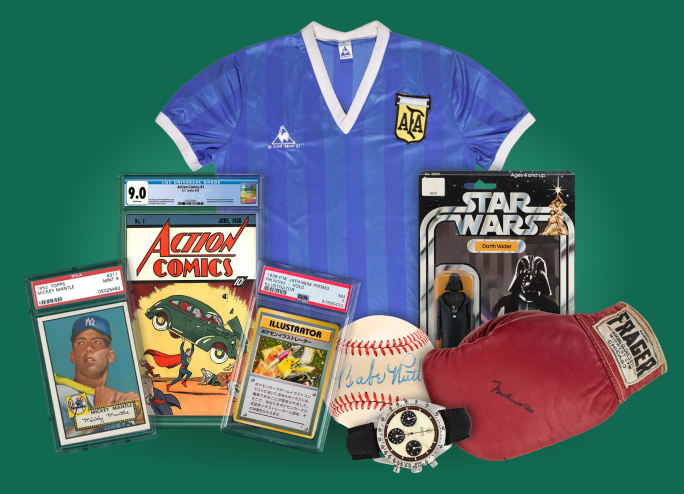Overall Sales Trends
— Sales volume increased significantly, up 25% in January from December.
— Sports card singles sales totaled $198 million in January, up from $166 million December (+19% MoM).
— CCG and non-sport singles sales totaled $116 million in January, up from $86 million in December (+35% MoM).
— Combined sales totaled $314 million in January, up from $252 million in December.
The TOP 25 Selling Players on eBay in January 2026
1. ⚾ Shohei Ohtani — $8.19m
2. 🏀 Michael Jordan — $8.17m
3. 🏈 Drake Maye — $6.24m
4. 🏀 Cooper Flagg — $5.79m
5. 🏀 Kobe Bryant — $3.90m
6. 🏀 LeBron James — $3.84m
7. 🏀 Victor Wembanyama — $3.58m
8. 🏀 Stephen Curry — $3.25m
9. 🏈 Tom Brady — $2.82m
10. 🏈 Caleb Williams — $2.58m
11. ⚾ Mickey Mantle — $2.53m
12. ⚾ Ken Griffey Jr — $1.92m
13. ⚾ Aaron Judge — $1.88m
14. 🏀 Kon Knueppel — $1.50m
15. 🏈 Patrick Mahomes — $1.48m
16. 🏈 Bo Nix — $1.47m
17. 🏀 Luka Doncic — $1.43m
18. ⚾ Paul Skenes — $1.37m
19. 🏀 Caitlin Clark — $1.27m
20. 🏈 Josh Allen — $1.26m
21. ⚽ Lionel Messi — $1.12m
22. 🏀 Shai Gilgeous-Alexander — $1.10m
23. 🏀 Anthony Edwards — $1.06m
24. 🏈 Jaxson Dart — $1.00m
25. ⚾ Nolan Ryan — $0.98m
The TOP 5 Selling Pokemon Characters on eBay in January 2026
1. ⚡ Charizard — $11.20m
2. ⚡ Pikachu — $8.81m
3. ⚡ Umbreon — $3.28m
4. ⚡ Gengar — $3.05m
5. ⚡ Mew — $2.89m
Sports - Where $$$ moved on eBay in January
🏈 Drake Maye: +$2.37m incremental sales ($6.24m total sales in Jan, +61% MoM)
🏀 Cooper Flagg: +$1.91m ($5.79m, +49%)
⚾ Shohei Ohtani: +$1.61m ($8.19m, +24%)
🏀 Michael Jordan: +$1.19m ($8.17m, +17%)
🏈 Caleb Williams +$1.06m ($2.58m, +70%)
Sports - Where momentum slowed on eBay in January
🏒 Connor McDavid: –$387k incremental sales ($0.25m total sales in Jan, –61% MoM)
🏀 Shai Gilgeous-Alexander: –$198k ($1.10m, –16%)
⚾ Yoshinobu Yamamoto: –$184k ($0.77m, –20%)
🏀 Stephon Castle: –$164k ($0.40m, –30%)
🏈 JJ McCarthy: –$154k ($0.37m, –30%)
Pokemon - Where $$$ moved on eBay in January
⚡️ Charizard: +$3.08m incremental sales ($11.20m total sales in Jan, +37% MoM)
⚡️ Pikachu: +$1.96m ($8.81m, +28%)
⚡️ Umbreon: +$890k ($3.28m, +37%)
⚡️ Mew: +$632k ($2.89m, +27%)
⚡️ Mewtwo: +$617k ($2.45m, +33%)
Report details
All data is sourced via eBay sales; only singles are included; data does not include lots, sets, packs, wax, etc
The full dataset for sports is here and Pokemon is here. The data currently covers 5,000 athletes and all characters in the Pokedex. More details on the approach can be found here.
